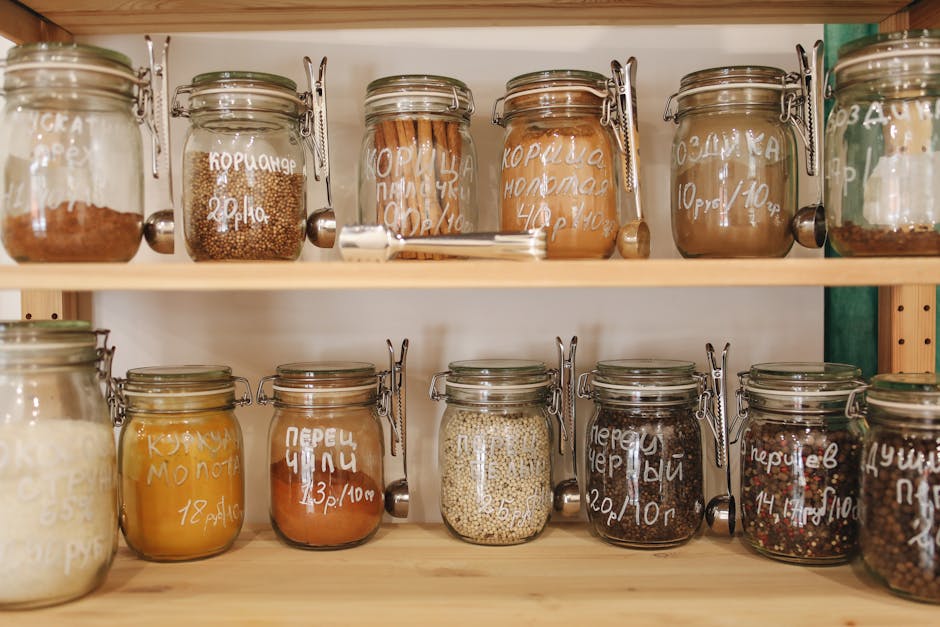Introduction
The organic phenomenon that once sprouted within the aisles of local markets selling free-range eggs and grass-fed beef has now blossomed impressively into the beauty industry. Sprouting up everywhere like wild daisies, organic makeup brands are captivating attention, seemingly magnetizing beauty enthusiasts who are increasingly enticed by cosmetics that are as good for their skin as they are for Mother Earth.
Why the sudden focus on these brands touting “all-natural” and “chemical-free” labels, you ask? Good question. The reasons are as varied as the hues in an all-natural eyeshadow palette. Environmental impacts, health considerations, an evolving ethical standpoint that’s entering mainstream consciousness – it’s all part of this fresh-faced movement.
Apart from these factors, another could be tied to our inherent love for novelty. The modern consumer is always seeking the next big thing – and right now, organic makeup happens to be cruising the high tides of the beauty industry. It’s a shift that’s not just about what’s dabbed on cheekbones or dusted over eyelids, but a more comprehensive movement towards conscious consumption, forming part of a much larger picture.

The Upsurge of Organic Makeup Brands
The organic makeup trend is more than just a passing fad – it’s a wave transforming the beauty industry. The rise of organic makeup brands is not an abrupt occurrence, rather an effect of a collective call for more sustainable and healthier ways of living. Brands focusing on organic and natural ingredients are popping up everywhere, responding to this ever-growing demand.
What’s driving this boom, you ask? There are a couple of key factors. First, an increased awareness of the negative impacts of some synthetic materials commonly found in conventional makeup. These ingredients not only can potentially harm our skin but also the environment. This understanding has resulted in consumers leaning towards more transparent brands that prioritize natural ingredients and eco-friendly practices.
Secondly, society’s perception of beauty is evolving. In the past, makeup was largely about transformative effects. Today, many people view makeup as part of a holistic approach to wellness and self-care. The beauty routines that we follow are seen not just as ways to alter or enhance our appearance but as times to nurture ourselves. Because organic makeup often contains beneficial ingredients like essential oils, antioxidants, vitamins, these products fit neatly into this more health-conscious outlook.
The rise of this organic trend is a clear indication that the beauty industry is not what it used to be. The shift in consumer demands is pushing even conventional brands to reevaluate their formulas and practices. Effectively, the whole beauty industry is drifting towards better sustainability and transparency, a change that benefits us as individuals and the world at large. The booming popularity of organic makeup brands is a testament to the power of consumer demand and the positive changes it can achieve.
Let’s delve deeper into why this change is something to be embraced. This upsurge of organic brands is not merely about jumping on a trend but adopting better, healthier beauty alternatives. Stay tuned as we explore the benefits of choosing organic makeup in our following section.

Benefits of Organic Makeup
In recent years, a shift towards a healthier and more sustainable lifestyle has encouraged women worldwide to pursue natural beauty products more passionately. Organic makeup is, without a doubt, no longer a niche. Instead, it’s a rapidly growing segment of the beauty industry that is transforming the definition of cosmetics.
The growing popularity of organic makeup can be attributed to the substantial benefits it offers, both health-wise and environmentally. From a health perspective, organic makeup is composed of natural ingredients derived from plants and minerals. Compared to regular makeup items, these products are free from harmful chemicals, synthetic fragrances, and toxins such as parabens, sulfates, and phthalates. This results in a decreased risk of skin irritation, allergies, inflammation and ensures a healthier skin in the long run. They’re gentler, causing less harm and providing more nourishment, making organic makeup suitable for all skin types, even sensitive ones.
Moreover, organic makeup is packed with essential vitamins, antioxidants, and nutrients that not only beautify but also nourish the skin. Organic face powders, for instance, are often loaded with natural SPF, defending your skin against harmful UV rays, while organic lipsticks often contain organic oils beneficial for maintaining moisture and keeping lips soft and luscious.
Aside from the advantages to personal health, using organic makeup is beneficial for Mother Earth as well. The production of organic cosmetics respects the environment by refraining from the use of potentially harmful agricultural chemicals, thus reducing pollution and conserving biodiversity. The eco-conscious ethos of organic brands also extends to packaging, often opting for recyclable or biodegradable materials over disposable plastic containers.
In conclusion, embracing organic makeup offers a twofold benefit. On a personal level, it brings a myriad of health benefits by supplying one’s skin with natural nourishment while avoiding harmful chemicals. On a larger scale, the switch to organic makeup fosters a greener and more sustainable planet by impacting the environment less harshly.
Embracing the benefits of organic makeup doesn’t mean compromising on the aesthetic appeal or performance of your cosmetics. In fact, a fusion of nature and science in the development of these products ensures that they not only provide healthy skin but also fulfill every makeup lover’s fantasy.

Organic vs Conventional Makeup: What’s the Difference?
When it comes to pointing out the disparities between conventional and organic makeup, the devil, as they say, is in the details, or in this case, in the ingredients. The primary difference between these two categories falls in the composition of their formulations. Conventional makeup often contains a mix of chemicals such as parabens, synthetic colors, and fragrances, all of which can be potentially harmful to the skin. Moreover, some ingredients might carry bigger risks like causing hormonal disruptions and even cancer, according to some scientific studies.
On the other side of the spectrum, organic makeup opts for botanical ingredients, derived from natural sources, providing a cleaner and safer choice for skin and overall health. Natural oils, plant extracts, and minerals are usual components, with a major emphasis on being free from toxic substances – both for your body and the environment.
It’s noteworthy that the extraction and manufacturing processes also differ significantly. Conventional makeup usually involves synthetic chemical processes, while organic variants emphasize eco-friendly and sustainable practices.
However, it’s crucial to unravel the catch here – just because a product says it’s ‘natural’ or ‘organic,’ it doesn’t entirely dash out the risk of skin reactions or irritations. Every skin type is unique, and what one person tolerates well, others might not. A crucial takeaway, therefore, is to know your skin well and do your due diligence when it comes to understanding and scrutinizing product labels.
Being aware of these differences not only allows for informed decision-making but also puts into perspective the possible impacts of seemingly trivial choices on our health and the environment.

Reviewing Top Organic Makeup Brands
In a world progressively shifting towards organic and eco-friendly norms, some organic makeup brands have made significant waves in the beauty industry. The following are a handful of the key players in the game, each bringing their unique product offerings to the eco-conscious table.
-
RMS Beauty: Founded by makeup artist Rose-Marie Swift, RMS Beauty is often lauded as a pioneer in the organic makeup space. Their products are renowned for being free from harmful chemicals and synthetic preservatives – just pure, raw, natural ingredients. The brand’s ‘Un’ Cover-Up Concealer is renowned for not just hiding imperfections but nourishing the skin simultaneously.
-
100% Pure: As the name suggests, 100% Pure ensures every ingredient in their makeup line is completely natural and unadulterated. They’re particular advocates of fruit pigmented makeup, deriving colors from antioxidant-rich fruits rather than synthetic dyes. Their Fruit Pigmented® Ultra Lengthening Mascara, for example, gets its deep hue from black tea leaves.
-
Juice Beauty: Juice Beauty owes much of its popularity to its commitment to ‘farm to beauty.’ They passionately believe in delivering skincare and makeup solutions fortified with organic key ingredients. Their PHYTO-PIGMENTS™ Flawless Serum Foundation, packed with age-defying serum technology, is a testament to their dedication to combining beauty with health.
-
ILIA Beauty: ILIA steps up by infusing their makeup line with active skincare ingredients to foster a real skin-like finish. The brand’s unique selling proposition lies in merging natural ingredients with the latest technology to create safer, high-performing products. Their True Skin Serum Foundation aims to blur the line between skincare and makeup.
-
Eco Bella: Eco Bella is another champion in the organic beauty industry. They prioritize not just green beauty, but also sustainable practices and cruelty-free testing. Their FlowerColor Lipstick is not only plant-based but also packaged in an eco-friendly recyclable container.
Each of these brands has shown that ‘organic’ and ‘quality’ aren’t mutually exclusive but can harmoniously coexist. Going organic with your makeup doesn’t necessitate a compromise on performance or aesthetics, but rather invites a synergy of beauty and well-being.

What to Look for in Organic Makeup Brands
When it comes to choosing eco-friendly beauty options, not all products are created equal. Here are a few key factors to consider when buying organic makeup to ensure you’re genuinely making a difference to your health and the environment:
-
Ingredients: The greatest allure of organic makeup is their natural ingredients list. These products are devoid of harmful substances such as parabens, sulfates, and synthetic fragrances which can irritate your skin and cause health problems. When choosing organic makeup brands, ensure they’re transparent about their ingredients, and nothing harmful is hiding behind vague terms like ‘fragrance’.
-
Certifications: With the upsurge in sustainable products, the market has been flooded with ‘greenwashed’ items, which may appear organic but aren’t. To avoid falling prey to such marketing ploys, look for labels and certifications from reputable bodies like the USDA (US Department of Agriculture) or the Soil Association in the UK. Their stamp of approval means the product truly maintains organic standards.
-
Packaging: An often overlooked aspect is the packaging of the product. Many organic brands take extra care to package their goods in eco-friendly materials such as recycled plastic or biodegradable alternatives. Checking the packaging before purchase is a real action towards an eco-conscious shopping habit.
-
Cruelty-Free: Many individuals choosing organic or natural products also value cruelty-free practices. Look for symbols like the Leaping Bunny or PETA’s cruelty-free bunny on the packaging. This indicates that not only are the ingredients considered safe for you, but they also weren’t tested on animals.
By understanding these elements when selecting organic makeup brands, you navigate past the misleading buzzwords and ensure your purchase is truly beneficial for your health, the environment, and animal welfare. Hence, while shifting to organic makeup may seem overwhelming at first, knowing what to look out for can help you make wiser and more eco-conscious shopping decisions.

Transitioning to Organic Makeup: A User’s Guide
Bidding farewell to your conventional makeup arsenal and taking the leap into the world of organic beauty might seem daunting at first. But, fear not! The transition need not be complex or confusing. Here are some practical tips and guidance to help you stride confidently into the clean beauty bandwagon.
Before anything else, it’s essential to grasp a basic understanding of what organic makeup offers— that is, responsibly-made products free from harmful chemicals, artificial dyes, and synthetic fragrances, steering clear of controversial ingredients. The beauty industry is making great strides and thankfully, there are now numerous brands offering such products that cater to all skin types and preferences.
Start by doing a ‘Simple Swap’. This means, when you run out of your conventional makeup product, replace it with an organic counterpart. You don’t have to change everything at once; start with the products you use most often. This could be your foundation, lip balm or mascara. By starting slow, the transition will be manageable and less overwhelming.
Research and dig deeper. Not all brands claiming to be ‘organic’ or ‘natural’ are necessarily safe. Reading labels can be tricky, but familiarizing yourself with common beauty ingredients and harmful substances to avoid is a useful skill in this journey.
Lastly, remember that patience is key when transitioning to organic makeup. Organic products tend to work differently than what you’re used to, mainly because they lack the synthetic additives for immediate results. Give your skin time to adjust. Temporary breakouts or skin reactions are normal; it’s just your skin detoxing and letting go of the chemical build-up.
Challenges? Of course, there will be some. The shift to organic makeup needs effort – reading labels and researching ingredients can get tiresome. Plus, organic makeup often comes with a steeper price tag. However, these are small prices to pay for the well-being of your skin and the environment. So, go on, embrace the challenges, and join the organic makeup revolution!

Eco-conscious Shopping: Broadening the Scope
Transitioning to an eco-conscious lifestyle isn’t just about switching up your makeup selections; it’s about making thoughtful choices with every purchase you make. The ripple effect of our shopping habits on the environment is a gravity-defying concept that demands our attention; it’s about learning to read beyond the price tag and into the invisible environmental markers that each product comes with.
We always leave an ecological footprint with every item we purchase, whether we’re aware of it or not. Everything we buy has a supply chain, from raw materials to transport and packaging, all of which potentially impacts the earth. The key to eco-conscious shopping is understanding this, and making purchases cascade positively into this chain, rather than negatively.
But how, you ask? Well, it’s quite simple yet requires a leap of faith. Start by asking if what you’re buying is sustainable. Has it been manufactured with minimal impact on the planet? Is there wasteful packaging involved or is there a reusable, recyclable alternative? And remember, sustainability also maps onto social aspects; it’s worth considering whether the workers involved in producing the item were treated fairly.
It’s not just makeup; everyday items like clothes, groceries, or household goods can and should be subject to the same level of scrutiny. Ever heard of slow fashion movement with focus on quality fabrics, or organic farmers’ markets over big grocery stores? Yep, that’s eco-conscious shopping too.
Of course, it can be overwhelming to keep track and research everything we buy, but remember, every little bit helps. There’s no such thing as a perfect eco-warrior, but by making more informed choices when possible, you’re helping to boost demand for goods that are created consciously and responsibly.
So, let’s broaden the scope and usher in a wave of eco-conscious lifestyle adjustments, not because it’s trendy, but because our planet, our home, is worth it. Let the shift towards organic makeup inspire wider changes in your lifestyle; allow it to be the first thread in the fabric of an eco-conscious life. Because in the end, it’s not just about being natural on the surface, but growing a global consciousness in our hearts, minds and shopping carts.

Conclusion
As we step back and survey the landscape of the beauty industry, it’s evident that an intriguing blend of beauty and ecological awareness has taken shape in the manifestation of organic makeup brands. Amidst a society increasingly cognizant of the impact we have on our environment, gravitating towards these brands feels like a natural progression rather than a trend.
The benefits of choosing organic makeup extend far beyond vanity or fashion trends. It’s a lifestyle democratic vote for a healthier body and a sustainable world. As dire as it might seem, conventional makeup carries potential health risks with all its synthetic ingredients. Organic brands, on the other hand, employ natural substances that work in harmony with our bodies.
Switching to organic makeup is not just a superficial change but a catalyst towards adopting completely eco-conscious lifestyles. As consumers, the power to propel or curb industries is in our hands; our purchasing decisions can encourage a trend in favor of environmental sustainability.
The transition to organic makeup might not be the easiest with the overflow of glossy advertisements promoting conventional makeup and our established habits to overcome. However, it is a meaningful journey that will leave us knowledgeable, healthier, and more impactful than when we started. Besides, is there any better feeling than donning beauty products that are in sync with your body and the environment?
In closing, the shift to organic makeup isn’t just about wearing eco-friendly blush or organic mascara; it’s about embracing a holistic approach to beauty. It’s about valuing the health of our skin as much as we value the vibrancy of our planet. It’s an invitation to become active participants in the ecological battle by switching our beauty routines for better, one organic lipstick at a time.
